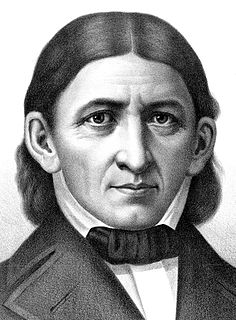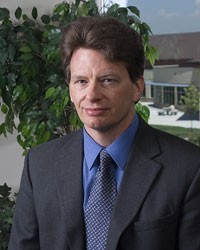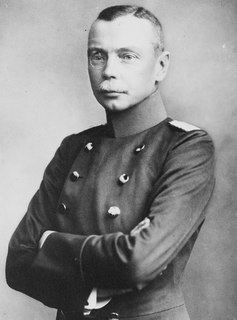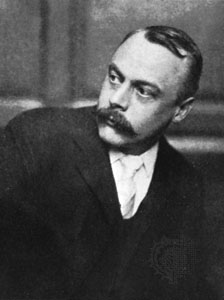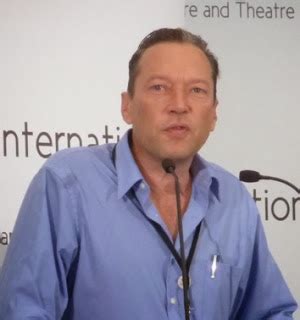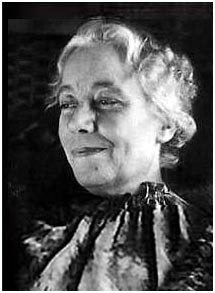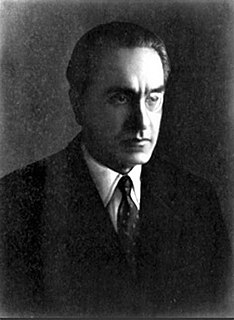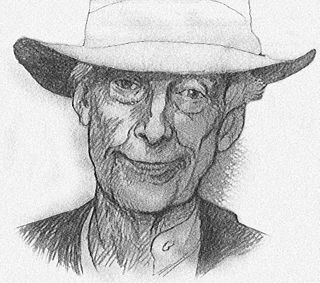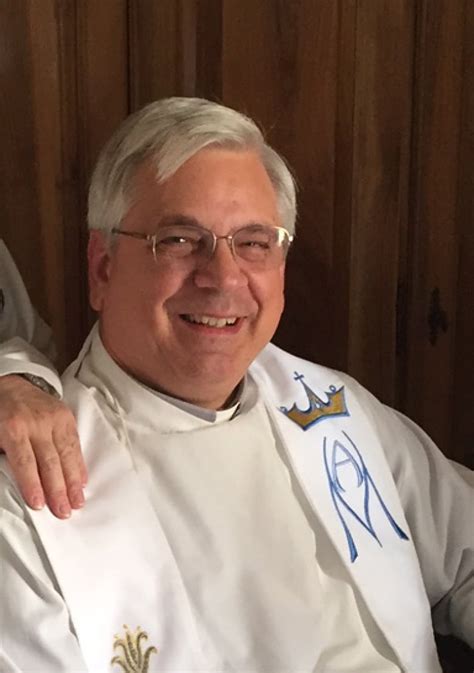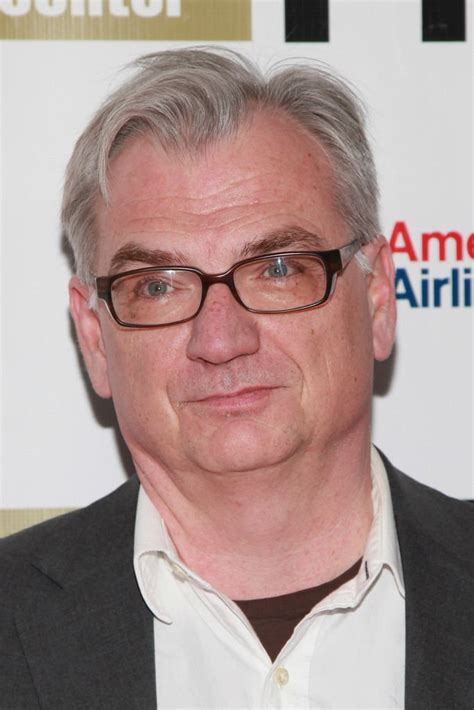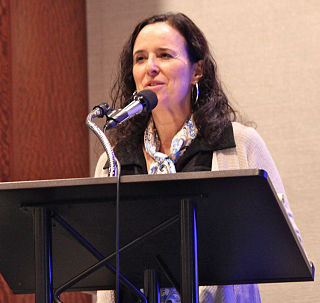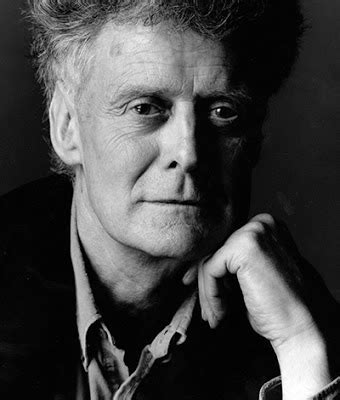Top 1048 Rooted Quotes & Sayings - Page 17
Explore popular Rooted quotes.
Last updated on December 11, 2024.
Let us protect our children; and let us not allow them to grow up into emptiness and nothingness, to the avoidance of good hard work, to introspection and analysis without deeds, or to mechanical actions without thought and consideration. Let us steer them away from the harmful chase after material things and the damaging passion for distractions... Let us educate them to stand with their feet rooted in God's earth, but with their heads reaching even into heaven, there to behold truth.
The Democrats are losing power in every election. And I think that's part of the panic. They want us to believe that the behavior and panic is rooted in an absolute outraged offense over this president that we have, this is just unacceptable and some maniac like Trump is so out of the ordinary, out of the norm, has to be stopped. I don't think that's what it is. I mean, it's part of it. But I think there's a much larger panic that is taking over the Democrat Party. And it's gonna implode on 'em.
As a young man, I yearned for the day when, rooted in the experience that comes only with age, I could do my work fearlessly. But today, in my mid-sixties, I realize that I will feel fear from time to time for the rest of my life. I may never get rid of my fear. But . . . I can learn to walk into it and through it whenever it rises up . . . naming the inner force that triggers . . . fear . . . Naming our fears aloud . . . is the first step toward transcending them.
This, then, is the foundation of sanctification in Reformed theology. It is rooted, not in humanity and their achievement of holiness or sanctification, but in what God has done in Christ, and for us in union with him. Rather than view Christians first and foremost in the microcosmic context of their own progress, the Reformed doctrine first of all sets them in the macrocosm of God's activity in redemptive history. It is seeing oneself in this context that enables the individual Christian to grow in true holiness.
Thanks to the leadership of Vice President Gore, we have a government for the Information Age, once again a government that is a progressive instrument of the common good, rooted in our oldest values of opportunity, responsibility and community, devoted to fiscal responsibility, determined to give our people the tools they need to make the most of their own lives in the 21st century, a 21st century government for 21st century America.
Abide in Me says Jesus. Cling to Me. Stick fast to Me. Live the life of close and intimate communion with Me. Get nearer to Me. Roll every burden on Me. Cast your whole weight on Me. Never let go your hold on Me for a moment. Be, as it were, rooted and planted in Me. Do this and I will never fail you. I will ever abide in you.
Without a thorough and deeply rooted understanding of the biblical view of truth as revealed, objective, absolute, universal, eternally engaging, antithetical and exclusive, unified and systematic, and as an end in itself, the Christian response to postmodernism will be muted by the surrounding culture or will make illicit compromises with the truth-impoverished spirit of the age. The good news is that truth is still truth, that it provides a backbone for witness and ministry in postmodern times, and that God's truth will never fail.
When we respect our blood ancestors and our spiritual ancestors, we feel rooted. If we find ways to cherish and develop our spiritual heritage, we will avoid the kind of alienation that is destroying society, and we will become whole again. ... Learning to touch deeply the jewels of our own tradition will allow us to understand and appreciate the values of other traditions, and this will benefit everyone.
I truly believe that a beautiful woman is a beautiful woman, but a beautiful woman with a brain is an absolutely lethal combination. Women of integrity, depth, sensuality and strength have always been my source of inspiration, the reason for what I do and how I got to where I am today. They are all my muse. If my quest, in what I do - to make women look and feel beautiful - reflects even a tiny fraction of my deep-rooted respect for them, and succeeds in celebrating these lives of strength and substance, then I will consider it a job well done.
I think what is being pointed out by African-Americans is that from slavery forward they have been living in a supposed democracy which treats them as less than other citizens, less than whites in the society. And I think that pointing out that there are structures of discrimination in the society, deeply rooted racist structures, that segregate housing, that send black children to ill-equipped schools, that discriminate in the workplace - these are truths about our society that must be faced.
Nation states are not a solution for democratic governance. This is same for Kurdish people. To see it as a solution is same as trying to drink water while drowning. The real necessity is oxygen not water. The solution is to get out of water and take a deep breath, decrease nation state and increase social democracy. Therefore our requests of a state are no further than a social and deeply rooted democracy.
How is it that the poets have said so many fine things about our first love, so few about our later love? Are their first poems their best? or are not those the best which come from their fuller thought, their larger experience, their deeper-rooted affections? The boy's flute-like voice has its own spring charm; but the man should yield a richer, deeper music.
I realized that most white Americans knew very little about our history and our struggle, and were having difficulty understanding the basis for our agitation and our resistance and our complaints. I also discovered that while black Americans had a sense of the beauty and tragedy of the journey from the time of slavery until now, we were not rooted in the specifics. I thought one way to familiarize people with that history would be through the voices of the great folk artists.
I never really knew what it meant, to win, until one day I was flying on the Phoenix Suns airplane, the team plane, on the way to Chicago. I was talking to Danny Ainge on this flight, and he was talking about the concept of knowing how to win. And so he proceeded to give me from his perspective as an athlete, and now he's a coach, what the whole concept of knowing how to win is, and he said part of it is rooted in experience, the experience of winning, but it's attitudinal, it's the belief that you should, it's the belief that you can, it's the belief.
The essential thing is action. Action has three stages: the decision born of thought, the order or preparation for execution, and the execution itself. All three stages are governed by the will. The will is rooted in character, and for the man of action character is of more critical importance than intellect. Intellect without will is worthless, will without intellect is dangerous.
I love, cherish, and respect women in my mind, in my heart, and in my soul. This love of women is the soil in which my life is rooted. It is the soil of our common life together. My life grows out of this soil. In any other soil, I would die. In whatever ways I am strong, I am strong because of the power and passion of this nurturant love.
Bealer argues that the kind of naturalistic view which Quine holds will rob him of the ability to make the normative claims which (many) naturalists wish to make in epistemology. I don't think this is right about Quine, but I'm certain it's not right about my own view. To the extent that I can show that talk of knowledge is firmly rooted within empirical theories where it plays an important explanatory role, I thereby demonstrate its naturalistic credentials.
In the last few decades we have seen the extraordinary rise of ecosocialist movements around the world inspired in large part by Marx's ecological critique of political economy. Marx was indeed influenced by some of the earliest attempts to develop what we now call an ecological-systems view, rooted in the concept of metabolism. Building on this perspective, Marx defined socialism as the rational regulation by the associated producers of the metabolism between society and nature in such a way as to conserve energy and to promote the satisfaction of human needs.
I remembered my New Orleans days, living on two five-cent candy bars a day for weeks at a time in order to have leisure to write. But starvation, unfortunately, didn't improve art. It only hindered it. A man's soul was rooted in his stomach. A man could write much better after eating a porterhouse steak and drinking a pint of whiskey than he could ever write after eating a nickel candy bar. The myth of the starving artist was a hoax.
Then suddenly the Mole felt a great Awe fall upon him, an awe that turned his muscles to water, bowed his head, and rooted his feet to the ground. It was no panic terror - indeed he felt wonderfully at peace and happy - but it was an awe that smote and held him and, without seeing, he knew it could only mean that some august presence was very, very near.
What sort of power is it that really and truly renders the deity present? Human beings automatically think of God as someone who possesses and wields power. Jesus forces people to consider whether that deeply rooted conviction is true or not. In historical terms it is readily apparent that power, left to its own inertial tendencies, tends to be oppressive in fact. So it cannot be the ultimate meditation of God, though human beings might tend to think so
So far as a man may be proud of a religion rooted in humility, I am very proud of my religion; I am especially proud of those parts of it that are most commonly called superstition. I am proud of being fettered by antiquated dogmas and enslaved by dead creeds (as my journalistic friends repeat with so much pertinacity), for I know very well that it is the heretical creeds that are dead, and that it is only the reasonable dogma that lives long enough to be called antiquated.
Is there an aesthetic "fit" in my work between God and the world? The "I' in my poems has from the beginning identified himself as Catholic, and my books certainly can be read as presenting a Catholic theology "in a very particular sense." Catholicism is a faith morally identified with the human struggle for human dignity and justice. It is a vision of the world incarnationally rooted in the senses, a faith of and in spoken and written words - Scripture, "the Word of God," the Logos.
The die is cast in Canada: there are two ethnic and linguistic groups; each is too strong and too deeply rooted in the past, too firmly bound to a mother culture, to be able to swamp the other. But if the two will collaborate inside of a truly pluralist state, Canada could become a privileged place where the federalist form of government, which is the government of tomorrow's world, will be perfected.
Our agreements on creating the conditions for preparing a peace treaty [with Japan] should be rooted in this trust. This may be achieved, for example, by large-scale economic activities that will also cover the Kuril Islands. It may be achieved by solving purely humanitarian issues, for instance, unhindered visa-free travel by former residents of the Southern Kuril Islands to where they used to live: visiting cemeteries, native places and so on.
The Bible never tells us to take a blind leap of faith into the darkness and hope that there's somebody out there. The Bible calls us to jump out of the darkness and into the light. That is not a blind leap. The faith that the New Testament calls us to is a faith rooted and grounded in something that God makes clear is the truth.
Historical science is not worse, more restricted, or less capable of achieving firm conclusions because experiment, prediction, and subsumption under invariant laws of nature do not represent its usual working methods. The sciences of history use a different mode of explanation, rooted in the comparative and observational richness in our data. We cannot see a past event directly, but science is usually based on inference, not unvarnished observation (you don't see electrons, gravity, or black holes either).
Remember remain alert that you don't get too much attached to the accidental - and all is accidental except your consciousness. Except your awareness, all is accidental. Pain and pleasure, success and failure, fame and defamation - all is accidental. Only your witnessing consciousness is essential. Stick to it! Get more and more rooted in it. And don't spread your attachment to worldly things.
Part of Sykes's motive was rooted in religiosity. A devout Catholic, he regarded a return of the ancient tribe of Israel to the Holy Land as a way to correcta nearly two-thousand-year-old wrong. That view had taken on new passion andurgency with the massacres of the Armenians. To Sykes, in that ongoing atrocity, the Ottoman Empire had proven it could never again be trusted to protectits religious minority populations. At war's end, the Christian and Jewish HolyLand of Palestine would be taken from it, and the failure of the Crusades maderight.
If you abide in the love of Christ, rooted in the faith, you will encounter, even amid setbacks and suffering, the source of true happiness and joy. Faith does not run counter to your highest ideals; on the contrary, it elevates and perfects those ideals. Dear young people, do not be satisfied with anything less than Truth and Love, do not be content with anything less than Christ.
A burst of harmony so brilliant that it almost overwhelmed them surrounded Meg, the cherubim, Calvin, and Mr. Jenkins. But after a moment of breathlessness, Meg was able to open herself to the song of the farae, these strange creatures who were Deepened, rooted, yet never seperated from each other, no matter how great the distance. We are the song of the universe. We sing with the angelic host. We are musicians. The farae and the stars are the singers. Our song orders the rhythm of creation.
To experience conflicts knowingly, though it may be distressing, can be an invaluable asset. The more we face our own conflicts and seek out our own solutions, the more inner freedom and strength we will gain. Only when we are willing to bear the brunt can we approximate the ideal of being the captain of our ship. Spurious tranquillity rooted in inner dullness is anything but enviable. It is bound to make us weak and an easy prey to any kind of influence.
It is also an absolute mistake to believe that the State can be anything other than a civitas diaboli if it does not resurrect itself as Imperium, and it is also a mistake to want to build the Imperium on the basis of economic, military, industrial or even 'intellectual' or nationalist factors. The Imperium, according to the primordial conception rooted in Tradition, is something transcendent, and it can only be attained by those who have the power to transcend the lives of petty men and their appetites, their sentimentalisms, their national prides, their 'values', and their phobias.
The modern Western world is in many ways a sustained attempt to deal with the unintended and unwanted problems related to the disruptive fracturing of Christianity in the 16th and 17th centuries; We can't understand ourselves or our world in 2017 - or its increasingly obvious and grave problems, and just how deeply rooted they are - unless we understand how much they owe to attempts to deal with the problems derived from what started 500 years ago, in 1517.
... the loss of belief in future states is politically, though certainly not spiritually, the most significant distinction betweenour present period and the centuries before. And this loss is definite. For no matter how religious our world may turn again, or how much authentic faith still exists in it, or how deeply our moral values may be rooted in our religious systems, the fear of hell is no longer among the motives which would prevent or stimulate the actions of a majority.
Hope is not attached to outcomes but is a state of mind, as Vaclav Havel says, "an orientation of the spirit." And I have faith; maybe more than hope, I have faith. I think of my great-grandmother, Vilate Lee Romney, who came from good pioneer Mormon stock. She always said to us that faith without works is dead, so I think if we have hope, we must work to further that hope. Maybe that is the most important thing of all, to have our faith rooted in action.
Kantians are saddled with absolutist views, Aristotelians are accused of vagueness, and there is almost no horror to which Consequentialists are innocent of, according to some critics. While all these families of views have been victimized in these ways, Consequentialists have gotten the worst of it. I think this may have something to do with the fact that Kant and Aristotle are acknowledged to be great philosophers, and we tend to read the greats sympathetically, while Consequentialism is a family of views not rooted in the work of a single great man to whom this kind of deference is owed.
When the soul is solidly rooted in... peacefulness, when it is freed of the bonds of every carnal urge, when the unshaking thrust of the heart is toward the one supreme Good, then the words of the apostle will be fulfilled. 'Pray without ceasing,' he said (I Thes. 5:17). 'In every place lift up pure hands, with no anger and no rivalry' (I Tim 2:8). Sensibility is, so to speak, absorbed by this purity. It is reshaped in the likeness of the spiritual and the angelic so that all its dealings, all its activity will be prayer, utterly pure, utterly without tarnish.
Any young boy can nowadays explain human flight - mechanistically: " ... and to climb you shove the throttle all the way forward and pull back just a little on the stick. ... " One might as well explain music by saying that the further over to the right you hit the piano the higher it will sound. The makings of a flight are not in the levers, wheels, and pedals but in the nervous system of the pilot: physical sensations, bits of textbook, deep-rooted instincts, burnt-child memories of trouble aloft, hangar talk.
At one point, for example, [Donald Trump] argued that he knew much more than military leaders about the pursuit and defeat of ISIS. His assuredness of his own correctness seems also rooted in arrogance reflecting his fundamental insecurity. This insecurity and his belief in his own rightness, when combined with his success at making money, leads him to be self-reliant in his decision-making, which could result in his taking risks with threatening or using nuclear weapons.
I went to the springs while the sun was still up, and sitting on a rocky outcrop above the cave mouth I watched the light grow reddish across the misty pools, and listened to the troubled voice of the water. After a while I moved farther up the hill, where I could hear birds singing near and far in the silence of the trees. The presence of the trees was very strong...The big oaks stood so many, so massive in their other life, in their deep, rooted silence: the awe of them came on me, the religion.
I truly believe that to stay home, to learn the names of things, to realize who we live among . . . then I believe a politics of place emerges where we are deeply accountable to our communities, to our neighborhoods, to our home . . . If we are not rooted deeply in place, making that commitment to dig in and stay put . . . then I think we are living a life without specificity, and then our lives become abstractions. Then we enter a place of true desolation.
Post-Modern space is historically specific, rooted in conventions, unlimited or ambiguous in zoning and irrational or transformational in its relation of parts to whole……. …skew or distorted spaces, created by sharp angles which exaggerate perspective…. …always keep a mental coordinate system no matter how free- form and baroque they become. The reference plane is always an implied frontality, and the route through the building or the curvilinear elements then relate to this conceptual cage
Money is a mystery. Not only is our behavior with respect to money sometimes puzzling and erratic, but our feelings about money are often contradictory, illogical, deep-rooted, and scarcely known even to our most secret selves. We are getting better at handling money, but what it means to us, how we use it to express ourselves, and how it can help us become all that we are meant to be remain murky issues.
When you're cooking with food as alive as this -- these gorgeous and semigorgeous fruits and leaves and flesh -- you're in no danger of mistaking it for a commodity, or a fuel, or a collection of chemical nutrients. No, in the eye of the cook or the gardener ... this food reveals itself for what it is: no mere thing but a web of relationships among a great many living beings, some of them human, some not, but each of them dependent on each other, and all of them ultimately rooted in soil and nourished by sunlight.
To know that you are God is another way of saying that you feel completely with this universe. You feel profoundly rooted in it and connected with it. You feel, in other words, that the whole energy, which expresses itself in the galaxies, is intimate. It is not something to which you are a stranger, but it is that with which you, whatever it is, are intimately bound up. That in your seeing, your hearing, your talking, your thinking, your moving, you express that which it is that moves the sun and other stars.
There rise authors now and then, who seem proof against the mutability of language, because they have rooted themselves in the unchanging principles of human nature. They are like gigantic trees that we sometimes see on the banks of a stream; which, by their vast and deep roots, penetrating through the mere surface, and laying hold on the very foundations of the earth, preserve the soil around them from being swept away by the ever-flowing current, and hold up many a neighboring plant, and perhaps worthless weed, to perpetuity.
When I'm standing in the middle of the salt flats, where you swear that the pupils of your eyes have turned white because of the searing heat that is rising from the desert, I think of my childhood, I think of my mother, my father, my grandparents; I think of the history that we hold there and it is beautiful to me. But it is both a blessing and a burden to be rooted in place. It's recognizing the pattern of things, almost feeling a place before you even see it. In Southern Utah, on the Colorado plateau where canyon walls rise upward like praying hands, that is a holy place to me.
Private property creates for the individual a sphere in which he is free of the state. It sets limits to the operation of the authoritarian will. It allows other forces to arise side by side with and in opposition to political power. It thus becomes the basis of all those activities that are free from violent interference on the part of the state. It is the soil in which the seeds of freedom are nurtured and in which the autonomy of the individual and ultimately all intellectual and material progress are rooted.
When we experience moments of ecstasy-in play, in art, in sex-they come not as an exception, an accident, but as a taste of what life is meant to be. . . Ecstasy is an idea, a goal, but it can be the expectation of every day. Those times when we're grounded in our body, pure in our heart, clear in our mind, rooted in our soul, and suffused with the energy, the spirit of life, are our birthright. It's really not that hard to stop and luxuriate in the joy and wonder of being. Children do it all the time. It's a natural human gift that should be at the heart of our lives.
The transition from Religion to Scientific contemplation is a violent, dangerous leap, which is not to be recommended. In order to make this transition, art is far rather to be employed to relieve the mind overburdened with emotions. Out of the illogical comes much good. It is so firmly rooted in the passions, in language, in art, in religion, and generally in everything which gives value to life. It is only the naive people who can believe that the nature of man can be changed into a purely logical one. We have yet to learn that others can suffer, and this can never be completely learned.
To commit herself to becoming "an apostle of Joy" when humanly speaking she might have felt at the brink of despair, was heroic indeed. She could do so because her joy was rooted in the certitude of the ultimate goodness of God's loving plan for her. And though her faith in this truth did not touch her soul with consolation, she ventured to meet the challenges of life with a smile. Her one lever was her blind trust in God.
Halfway down a by-street of one of our New England towns stands a rusty wooden house, with seven acutely peaked gables, facing towards various points of the compass, and a huge, clustered chimney in the midst. The street is Pyncheon Street; the house is the old Pyncheon House; and an elm-tree, of wide circumference, rooted before the door, is familiar to every town-born child by the title of the Pyncheon Elm.
You'll also hear about the widening gap in the educated and the uneducated. The liberals will all say, "We must do something about it" and some in our population swoon, "Oh, yes, it's so unfair, and so unfortunate, and we've gotta do something about the inequality." So the Democrats then have their reason to do something about it, and the way they go about it is not trying to make people equal at all. The way they go about it is not even rooted in changing inequality, at the end of the day. The way they go about it is destructive for everybody.
The mountain has left me feeling renewed, more content and positive than I’ve been for weeks, as if something has been given back after a long absence, as if my eyes have opened once again. For this time at least, I’ve let myself be rooted in the unshakable sanity of the senses, spared my mind the burden of too much thinking, turned myself outward to experience the world and inward to savor the pleasures it has given me.
In anthropology, which historically exists to 'give voice' to others, there is no greater taboo than self-revelation. The impetus of our discipline, with its roots in Western fantasies about barbaric others, has been to focus primarily on 'cultural' rather than 'individual' realities. The irony is that anthropology has always been rooted in an 'I' - understood as having a complex psychology and history - observing a 'we' that, until recently, was viewed as plural, ahistorical, and nonindividuated.
Macbeth: How does your patient, doctor? Doctor: Not so sick, my lord, as she is troubled with thick-coming fancies that keep her from rest. Macbeth: Cure her of that! Canst thou not minister to a mind diseased, pluck from the memory a rooted sorrow, raze out the written troubles of the brain, and with some sweet oblivious antidote cleanse the stuffed bosom of that perilous stuff which weighs upon her heart. Doctor: Therein the patient must minister to himself.
You live in a society that is shaped in every possible way by the Bible. The language you use, the laws you obey (and disobey), the founding principles of your nation, the disputes about abortion, homosexuality, adultery - these and so much else in your world are rooted in the Bible. You don't have to read it for its truth value. You should read it to understand how your world got the way it is, the way you would read the constitution or Shakespeare.
There's more truth about a camp than a house. Planning laws need not worry the improvising builder because temporary structures are more beautiful anyway, and you don't need permission for them. There's more truth about a camp because that is the position we are in. The house represents what we ourselves would like to be on earth: permanent, rooted, here for eternity. But a camp represents the true reality of things: we're just passing through.
